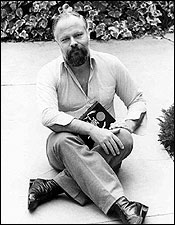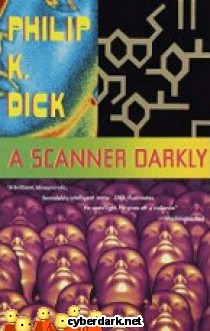Music and Literature Today
As every fan of Peanuts cartoons knows, today is Beethoven's birthday.

He was born in 1770, and let's face it; he had a pretty miserable life. His father was an abusive opportunist who chained him to his piano during his childhood in an effort to make him a second Mozart. He suffered nearly constant pain from the time he turned 30 (the most recent theory is that this stemmed from lead poisoning, but I'm sure he didn't care much about the cause). And, of course, he wrote his greatest music after he lost his hearing, and never got a chance to hear it. Despite all that, a lot of musicologists will tell you that he took the clear rules of classical music and used them to produce something entirely new, a clear and necessary step to the Romantic style in art that we still enjoy today, for better or worse. Good thing, too, because Mozart had explored those classical rules about as thoroughly as possible. Without some breakthrough like Beethoven provided, European composers would have been stuck repeating Mozart's moves until they died a painless death.
Despite all that, a lot of musicologists will tell you that he took the clear rules of classical music and used them to produce something entirely new, a clear and necessary step to the Romantic style in art that we still enjoy today, for better or worse. Good thing, too, because Mozart had explored those classical rules about as thoroughly as possible. Without some breakthrough like Beethoven provided, European composers would have been stuck repeating Mozart's moves until they died a painless death.
I believe that when we die, we experience time in the same way God does, which is to say, all moments simultaneously. Maybe Beethoven is listening to the Ninth Symphony right now.
Well, anyway, I've known since childhood that December 16th was Ludwig's birthday. I did not, however, know until recently that today is also Philip K. Dick's 77th birthday (or would be if he were still alive).

Actually, I suspect that Phil would be the first to suggest that his "death" is insignificant under the circumstances. In his entire writing career, he never stopped questioning the reality of reality. He wrote about drug pushers who exist only in pharmaceutical hallucinations, androids with more soul than their human creators, the victory of Japan and Germany over the United States in World War II (yes, you read that right). Just before his death, Hollywood finally caught on to his genius and gave us Bladerunner, based on his novel Do Androids Dream of Electric Sheep? Since then, Hollywood has given us Total Recall, Imposter, Minority Report and Paycheck, all based on Dick short stories, and there's talk of a movie based on his novel A Scanner Darkly.
Just before his death, Hollywood finally caught on to his genius and gave us Bladerunner, based on his novel Do Androids Dream of Electric Sheep? Since then, Hollywood has given us Total Recall, Imposter, Minority Report and Paycheck, all based on Dick short stories, and there's talk of a movie based on his novel A Scanner Darkly.  That last is pretty exciting (apart from the fact that Keanu Reeves seems to be starring in it), since Dick himself considered it "the only masterpiece I will ever write." That may be correct, but you have to read them all anyway, whether you like science fiction or not.
That last is pretty exciting (apart from the fact that Keanu Reeves seems to be starring in it), since Dick himself considered it "the only masterpiece I will ever write." That may be correct, but you have to read them all anyway, whether you like science fiction or not.
A more interesting point today, however, is that Philip K. Dick did in literature (yeah, literature, you snobs) what Beethoven did in music; he took the established rules and used them to make something utterly unexpected. Good thing, too, because shortly before "Bladerunner" came out, we all went to see a little movie called "Star Wars." Which was a perfectly good piece of fantasy, but it took over the world. Go to any bookstore and check out the science fiction section; at least half of it consists of Star Wars tie-ins, or Star Trek tie-ins, or some other movie or television novelization. If it weren't for Philip K. Dick and people like him, there would be no science fiction left at all.
So, as with Beethoven (born December 16, 1770), so with Philip K. Dick (born December 16, 1928). Both geniuses, both historically and artistically critical. But let's let Schroeder have the last word:

Benshlomo says, Geniuses write their own rules.

He was born in 1770, and let's face it; he had a pretty miserable life. His father was an abusive opportunist who chained him to his piano during his childhood in an effort to make him a second Mozart. He suffered nearly constant pain from the time he turned 30 (the most recent theory is that this stemmed from lead poisoning, but I'm sure he didn't care much about the cause). And, of course, he wrote his greatest music after he lost his hearing, and never got a chance to hear it.
 Despite all that, a lot of musicologists will tell you that he took the clear rules of classical music and used them to produce something entirely new, a clear and necessary step to the Romantic style in art that we still enjoy today, for better or worse. Good thing, too, because Mozart had explored those classical rules about as thoroughly as possible. Without some breakthrough like Beethoven provided, European composers would have been stuck repeating Mozart's moves until they died a painless death.
Despite all that, a lot of musicologists will tell you that he took the clear rules of classical music and used them to produce something entirely new, a clear and necessary step to the Romantic style in art that we still enjoy today, for better or worse. Good thing, too, because Mozart had explored those classical rules about as thoroughly as possible. Without some breakthrough like Beethoven provided, European composers would have been stuck repeating Mozart's moves until they died a painless death.I believe that when we die, we experience time in the same way God does, which is to say, all moments simultaneously. Maybe Beethoven is listening to the Ninth Symphony right now.
Well, anyway, I've known since childhood that December 16th was Ludwig's birthday. I did not, however, know until recently that today is also Philip K. Dick's 77th birthday (or would be if he were still alive).

Actually, I suspect that Phil would be the first to suggest that his "death" is insignificant under the circumstances. In his entire writing career, he never stopped questioning the reality of reality. He wrote about drug pushers who exist only in pharmaceutical hallucinations, androids with more soul than their human creators, the victory of Japan and Germany over the United States in World War II (yes, you read that right).
 Just before his death, Hollywood finally caught on to his genius and gave us Bladerunner, based on his novel Do Androids Dream of Electric Sheep? Since then, Hollywood has given us Total Recall, Imposter, Minority Report and Paycheck, all based on Dick short stories, and there's talk of a movie based on his novel A Scanner Darkly.
Just before his death, Hollywood finally caught on to his genius and gave us Bladerunner, based on his novel Do Androids Dream of Electric Sheep? Since then, Hollywood has given us Total Recall, Imposter, Minority Report and Paycheck, all based on Dick short stories, and there's talk of a movie based on his novel A Scanner Darkly.  That last is pretty exciting (apart from the fact that Keanu Reeves seems to be starring in it), since Dick himself considered it "the only masterpiece I will ever write." That may be correct, but you have to read them all anyway, whether you like science fiction or not.
That last is pretty exciting (apart from the fact that Keanu Reeves seems to be starring in it), since Dick himself considered it "the only masterpiece I will ever write." That may be correct, but you have to read them all anyway, whether you like science fiction or not.A more interesting point today, however, is that Philip K. Dick did in literature (yeah, literature, you snobs) what Beethoven did in music; he took the established rules and used them to make something utterly unexpected. Good thing, too, because shortly before "Bladerunner" came out, we all went to see a little movie called "Star Wars." Which was a perfectly good piece of fantasy, but it took over the world. Go to any bookstore and check out the science fiction section; at least half of it consists of Star Wars tie-ins, or Star Trek tie-ins, or some other movie or television novelization. If it weren't for Philip K. Dick and people like him, there would be no science fiction left at all.
So, as with Beethoven (born December 16, 1770), so with Philip K. Dick (born December 16, 1928). Both geniuses, both historically and artistically critical. But let's let Schroeder have the last word:

Benshlomo says, Geniuses write their own rules.

0 Comments:
Post a Comment
<< Home